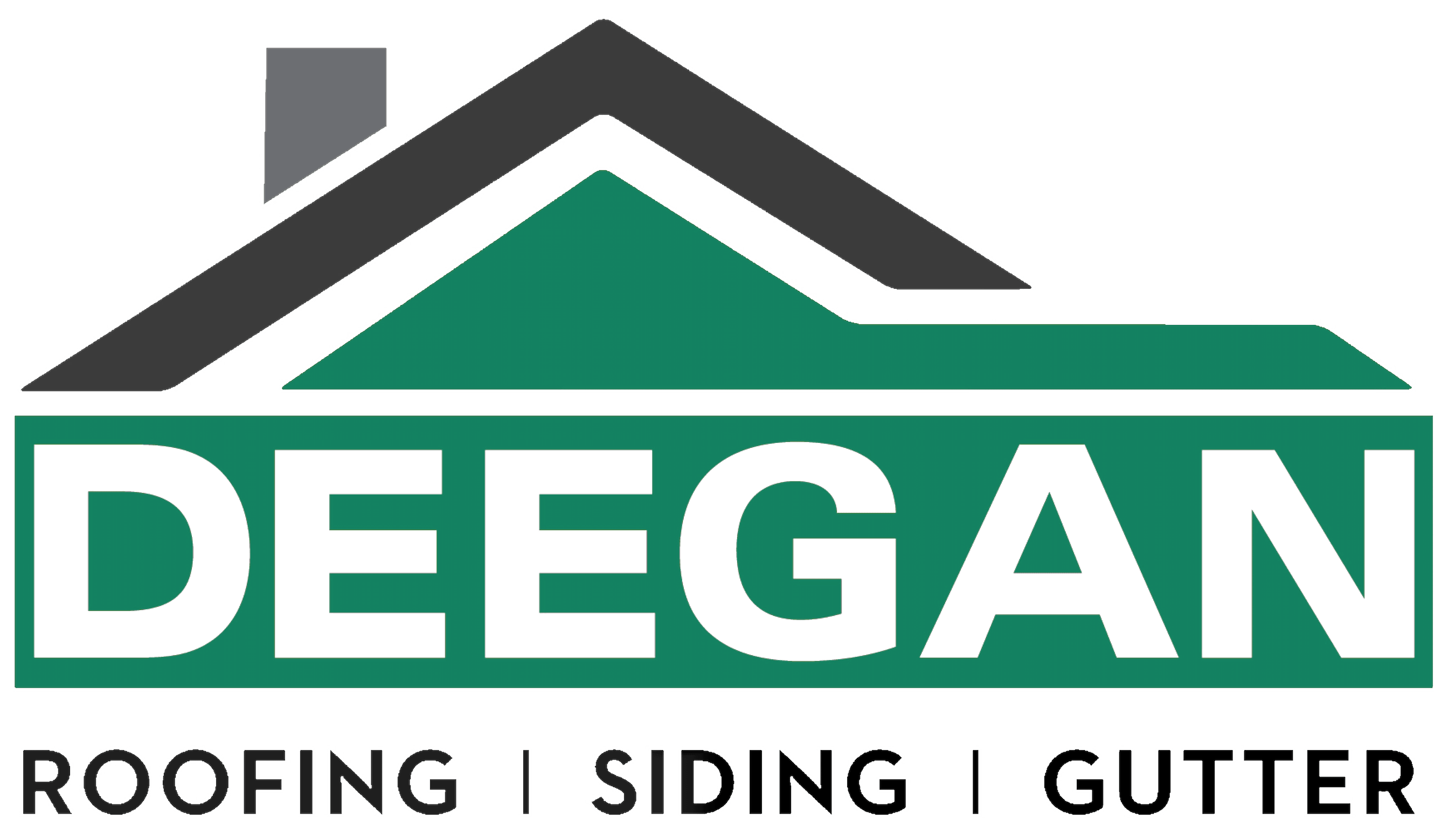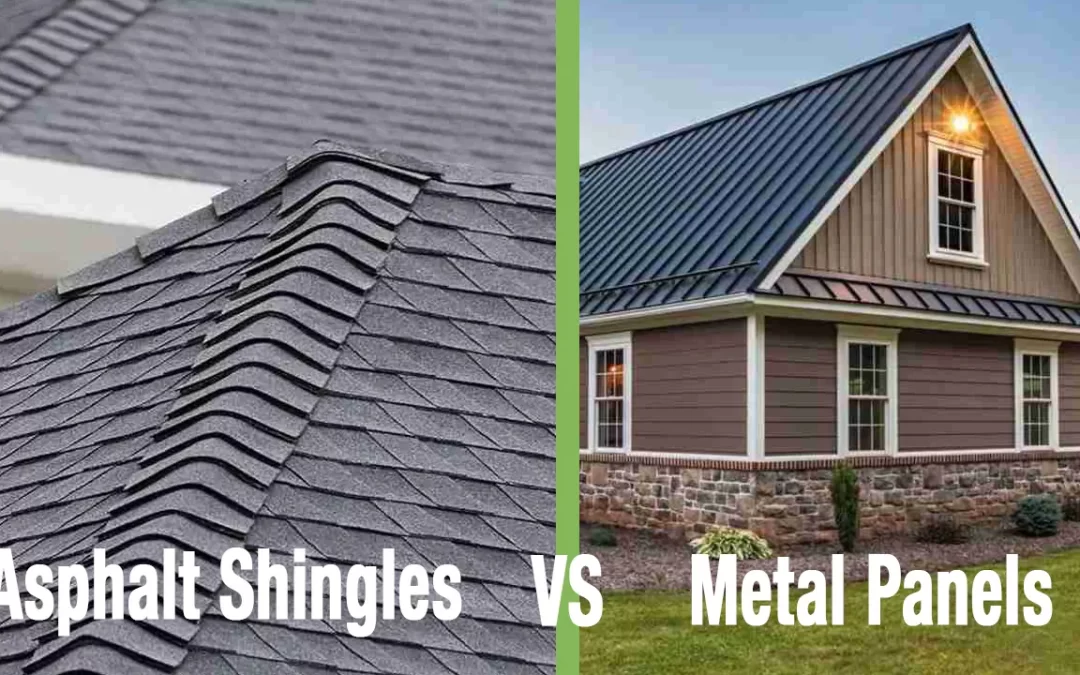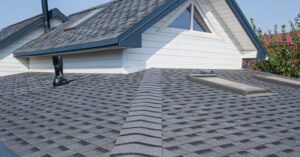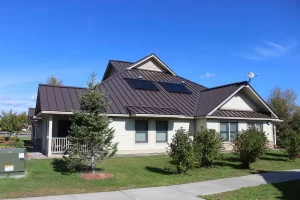Choosing the right roofing material is one of the most important decisions New Jersey homeowners face. With the region’s mix of humid summers, heavy snowfalls, and unpredictable storms, your roof needs to do more than just look good—it must be durable, energy-efficient, and cost-effective. Two of the most popular options for NJ homes are asphalt shingles and metal roofing.
In this blog post, we’ll break down the pros and cons of both materials to help you decide which is best for your property. We’ll also consider factors like cost, lifespan, aesthetics, maintenance, and energy efficiency—all through the lens of NJ’s unique climate. Whether you’re replacing an aging roof or building a new home, understanding the differences between these two roofing options is crucial. Your final decision can affect everything from your monthly utility bills to your home’s resale value. This article compares Asphalt Shingles vs. Metal Roofing to guide you toward the right choice for your home.
What Are Asphalt Shingles?
Asphalt shingles are the most commonly used roofing material in the United States. They are made from a fiberglass base coated with asphalt and topped with ceramic granules. This combination provides a durable, weather-resistant surface that can be installed relatively easily. Over the years, asphalt shingles have evolved to offer better performance and a wider variety of styles.
This material is particularly suited for residential applications, especially in suburban neighborhoods throughout New Jersey. Due to their popularity, asphalt shingles are readily available, and most contractors are familiar with their installation and maintenance. They come in several categories including 3-tab, architectural, and premium shingles, each varying in thickness and durability.
Benefits of Asphalt Shingles
Easy Installation and Repair: Asphalt shingles are straightforward to install, and many roofing professionals have significant experience working with them. This ease of installation means faster project completion and fewer complications. If a shingle becomes damaged, it’s typically easy to replace just that section, saving time and effort.
Aesthetic Variety: Asphalt shingles are known for their design flexibility. Homeowners can choose from a broad palette of colors and textures to suit any architectural style. This adaptability makes them particularly appealing for traditional homes, as well as modern builds looking to maintain a clean, consistent look.
Weather Performance: While not as strong as metal, asphalt shingles still offer reliable protection against moderate wind, rain, and snow. Newer versions include better sealing technologies and impact-resistant features that enhance their performance.
Drawbacks of Asphalt Shingles
Shorter Lifespan: Compared to other materials, asphalt shingles tend to have a shorter lifespan. They may degrade faster under harsh sunlight or from heavy snow accumulation. If long-term durability is your priority, you may find yourself needing a replacement sooner than with a metal roof.
Vulnerability to Weather: In extreme weather events, asphalt shingles are more likely to crack, peel, or be blown away. They are particularly vulnerable to strong wind gusts and hail, which can compromise their integrity over time.
Environmental Concerns: Asphalt shingles are petroleum-based, which means they require fossil fuels to produce. Additionally, most used shingles are not recycled, leading to increased landfill waste and a larger environmental footprint.
What Is Metal Roofing?
Metal roofing is a durable, long-lasting material made from various metals including steel, aluminum, and copper. It is manufactured in panels or shingles and can be installed on a variety of building types. Known for its sleek, modern appearance, metal roofing has grown in popularity among homeowners looking for a more permanent roofing solution.
While initially more expensive, metal roofing provides a better return on investment due to its longevity, low maintenance, and energy efficiency. It can also be designed to mimic other materials like wood shakes, clay tiles, or slate, giving homeowners plenty of style options. In climates like New Jersey’s, where weather conditions can be severe and variable, metal roofs offer robust protection.
Benefits of Metal Roofing
Exceptional Longevity: Metal roofs can easily last several decades when properly maintained. Their long service life makes them ideal for homeowners who plan to remain in their homes for many years or who want a roofing solution that won’t need frequent replacement.
Superior Weather Resistance: Metal roofing stands up exceptionally well against the elements. Whether it’s high winds, heavy snow, torrential rain, or hailstorms, metal roofing provides excellent defense, ensuring your home stays protected in all seasons.
Energy Efficiency: A metal roof reflects solar energy, helping to maintain a cooler home interior during summer. This reflective property contributes to reduced energy consumption and a more comfortable living environment.
For general roofing information and tips, you can also explore Energy.gov’s.
Eco-Friendly Qualities: Most metal roofs are manufactured using recycled materials and are fully recyclable at the end of their lifespan. Choosing metal can significantly reduce the environmental impact of your roofing project.
Stylish and Versatile: Homeowners have a range of finishes, profiles, and colors to choose from when selecting metal roofing. Whether you want a bold modern look or something that mimics traditional roofing materials, metal gives you the options you need.
Drawbacks of Metal Roofing
Higher Initial Investment: While more expensive upfront, metal roofs tend to require fewer repairs and replacements, making them more economical in the long run. However, the higher initial investment can be a barrier for some homeowners.
Installation Expertise Required: Metal roofs demand a certain level of precision during installation. It’s important to hire contractors with specific experience in metal roofing to ensure proper fitting, sealing, and long-term performance.
Noise Factor: Without adequate insulation, rain and hail can be more audible on metal roofing. Proper underlayment and attic insulation help to reduce this noise, but it’s something to keep in mind.
Thermal Expansion: Metal roofing can expand and contract with changing temperatures. This movement can stress fasteners and seams, so it must be accounted for during installation with the right materials and techniques.
Durability and Value Over Time
Instead of focusing on pricing, it’s helpful to consider value in terms of long-term durability, required upkeep, and overall performance. Asphalt shingles may require more frequent replacements and maintenance over time, which can add to the total effort and cost associated with your roof.
Metal roofing, while requiring more planning and expertise at the outset, typically needs less frequent attention and can continue protecting your home effectively for decades. This difference in maintenance and longevity plays a significant role in determining the true value of your investment over the years.
In a state like New Jersey, where roofs face four distinct seasons and occasional extreme weather, choosing a roofing material that offers extended performance and reliability is crucial for long-term peace of mind.
Which Roofing Type is Better for NJ Homes?
(Asphalt Shingles vs. Metal Roofing)
For New Jersey homes, the ideal roofing material must endure harsh winters, strong winds, and humid summers. Both asphalt shingles and metal roofs can handle the state’s diverse climate, but metal edges ahead in durability and efficiency.
Asphalt shingles are an excellent choice for homeowners who prioritize traditional aesthetics and quick installation. They are easier to install and repair and work well for shorter-term housing plans. However, those planning to stay in their home long-term may find the maintenance and eventual replacement needs outweigh the initial simplicity.
Metal roofing is ideal for long-term homeowners seeking a durable, low-maintenance solution. It can be especially beneficial in coastal or rural NJ regions where storms are more frequent. Its superior weather resistance and energy performance make it a top contender for high-demand environments.
Maintenance & Repairs in NJ
Regardless of the material, every roof requires routine care to extend its lifespan and maintain performance. New Jersey’s weather can be unpredictable, with spring rain, summer heat, autumn leaves, and winter snow all taking a toll on your roof.
Asphalt shingle roofs need more frequent inspections for granule loss, curling, or missing tiles. Metal roofs, although more durable, should still be checked annually for fastener movement, corrosion, or damaged coatings. Keeping gutters clear and trimming overhanging branches are simple steps that can prevent bigger issues down the road.
Hiring a local roofing company like Deegan Roofing ensures your roof is professionally maintained year-round. They understand the specific challenges of NJ climates and tailor their services accordingly.
Eco-Friendly Roofing Options
Sustainability is becoming a priority for many NJ homeowners. Metal roofing stands out as the greener option, largely due to its recyclability and energy efficiency. Reflective coatings reduce heat absorption, lowering the demand for air conditioning and contributing to lower greenhouse gas emissions.
Although asphalt shingles are not as sustainable, newer “cool roof” technologies and recycling initiatives are slowly improving their environmental profile. Some manufacturers offer shingles made with recycled materials, and innovations continue to reduce their ecological footprint.
When weighing Asphalt Shingles vs. Metal Roofing, the metal option consistently emerges as the more environmentally responsible choice. Choosing metal can help you lower your energy bills and reduce the overall impact of your home on the environment.
Ultimately, if reducing your carbon footprint is a key factor in your decision, metal roofing is the superior choice.
Final Verdict
The choice between Asphalt Shingles vs. Metal Roofing depends on your specific needs, long-term plans, and environmental values. Asphalt shingles are ideal for homeowners looking for a classic appearance and quicker installation. Metal roofing is better suited for those focused on longevity, eco-friendliness, and minimal maintenance.
Both materials have their place in New Jersey’s residential market, and your final decision should take into account the age of your home, the length of time you plan to stay, and how much maintenance you’re willing to take on. In the debate of Asphalt Shingles vs. Metal Roofing, the winner ultimately comes down to your priorities.
Choose Deegan Roofing – Your Trusted NJ Roofing Experts
For over 30 years, Deegan Roofing has proudly served Union County, Somerset County, Middlesex, Bergen, and beyond with top-rated roofing solutions. Whether you’re considering asphalt shingles or metal roofing, our experienced team offers free estimates, personalized consultations, and quality craftsmanship backed by industry certifications.
From installations to repairs and inspections—we’ve got you covered with honest advice and long-lasting solutions.
📞 Contact Deegan Roofing Today!
Phone: (908) 322-6405
Email: info@deeganroofing.com
Website: www.deeganroofing.com
Estimates: Get a Free Estimate
Let Deegan Roofing help you choose the best roofing solution for your NJ home—backed by decades of experience and a commitment to excellence.



